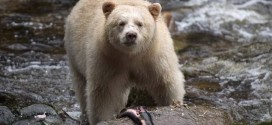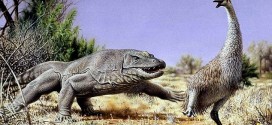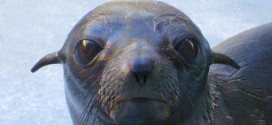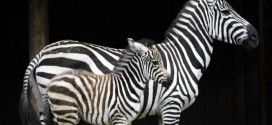It might sound like a Jules Verne novel come to life, but a team of scientists are currently working on the very serious endeavor of drilling down toward the center of the Earth. Rather than searching for prehistoric humans or herds of mastodons, the Joint Oceanographic Institutions for Deep Earth Sampling (JOIDES) expedition 360 set out last month to drill …
Read More »Science
South England’s 2014 floods made more likely by climate change, says new Research
The January 2014 flooding in the south-west and north-east of England was due to man-made climate change, say scientists from Oxford University. They say the stormiest period of weather the UK has experienced over the past 20 years occurred as greenhouse gases increased the risk of adverse weather. They found that anthropogenic greenhouse gas emissions increased the risk of the …
Read More »Turning good vibrations into energy, says new Research
New tools for harvesting wind energy may soon look less like giant windmills and more like tiny leafless trees. A project at The Ohio State University is testing whether high-tech objects that look a bit like artificial trees can generate renewable power when they are shaken by the wind—or by the sway of a tall building, traffic on a bridge …
Read More »Most of British Columbia Great Bear Rainforest protected
The provincial government and over 20 First Nations signed agreements in Vancouver today that finalize land use planning for the central and northern coast of British Columbia. The deal, which will be enshrined in legislation this spring, applies to a stretch of 6.4 million hectares of the coast from the north of Vancouver Island to the Alaska Panhandle. It promises …
Read More »UK Researchers get go-ahead to edit human embryos
A UK regulator has approved British scientists’ request to use a controversial technique called CRISPR to edit genes in human embryos. The Human Fertilisation and Embryology Authority (HFEA), the official regulator, has given its approval for scientists at the Francis Crick Institute, which has laboratories in London and Hertfordshire, to “edit” embryo genes.
Read More »Ancient Australian bird extinction points to humans, says new Research
An apparently very tasty, 500-pound Australian bird was eaten to extinction by humans 50,000 years ago, new research concludes. Scientists have revealed that early humans developed a taste for roasting its huge eggs on their campfires, leading to the bird’s demise.
Read More »Guadalupe fur seal rescued off Vancouver Island dies
A Guadalupe fur seal that was rescued from the southwest coast of Vancouver Island, more than 2,000 kilometres from its habitat, has died. It was rescued from a beach in Pacific Rim National Park Reserve last Thursday.
Read More »Beyond chess: Computer beats human at strategy game
The Google DeepMind computer has secured a milestone gaming victory in defeating a human at playing Go, the oldest existing board game. The software defeated European champion Fan Hui, France national team coach, 5-0 in October last year.
Read More »Raptors’ short legs made them slow runners, new study says
A new study from the University of Alberta shows a dinosaur’s speed is all in its legs. Scientists looked at carnivorous dinosaurs who had to hunt down their prey, and found those with longer lower legs were capable of running faster than those with shorter lower legs.
Read More »Graphene could help planes fly in icy conditions, Report
A new nanotech coating can melt ice on helicopter blades and might offer a new way to de-ice aircraft, wind turbines, and power lines. The coating by the Rice lab of chemist James Tour may be an effective real-time de-icer for aircraft, wind turbines, transmission lines and other surfaces exposed to winter weather, according to a new paper in the …
Read More »Zebras Stripes Not for Camouflage, new study says
Zebra stripes provide protection from biting flies. The stripes are not a protection against predators as has been previously thought for several decades. Amanda Melin, an assistant professor of biological anthropology at the University of Calgary in Canada, and colleagues are the first to show what zebra stripes are really for in the Jan 22, 2016, edition of the journal …
Read More » Canada Journal – News of the World Articles and videos to bring you the biggest Canadian news stories from across the country every day
Canada Journal – News of the World Articles and videos to bring you the biggest Canadian news stories from across the country every day










